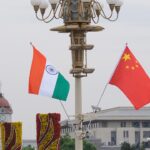Senior officials from Trump administration seem continue to diverge on how to pursue trade and economic relations with China, which should be prepared for the wobbly polices coming from Washington, Chinese experts say.
After Trump’s trade advisor Peter Navarro told Fox News on Monday that the phase one trade deal with China was “over,” followed by a series of clarifications from the White House including President Trump tweeting the deal is “fully intact,” US Treasury Secretary Steven Mnuchin said on Tuesday that he had “every expectation” that China would live up to the terms of the trade deal.
In addition, he hoped US companies should cooperate with their Chinese counterparts. “If we can compete with China on a fair and level playing field, it is a great opportunity for US businesses and US workers, as China has a large, growing middle class,” the secretary said. “But if we can’t participate and compete on a fair basis, then you are going to see a decoupling going forward.”
Gao Lingyun, an expert at the Chinese Academy of Social Sciences in Beijing who closely follows the China-US trade conflict, said it is obvious that US politicians are split in two groups in terms of setting policies toward China, but both groups want to put American interests first and foremost, adding all foreign companies in the Chinese market are now competing fairly.
It seems that containing China’s development through setting rules has gained the upper hand in US government’ decision-making process, and the pro-business group is led by people like Mnuchin and US trade representative Robert Lighthizer, said Gao.
“Different from another group of US politicians who always hold their ‘cold-war’ mentality toward China, such as US Secretary of State Mike Pompeo and Navarro, Lighthizer and Mnuchin want to talk with Chinese officials and gain more interests for the broader US business corps in China,” he told the Global Times on Wednesday.
Gao added that the two governments should allow both countries’ respective advantages to be given full play and compete freely in keeping to market rules, in a practical “win-win” format benefitting both nations.
At the current stage when the US is still struggling to contain the COVID-19 pandemic, US politicians are weighing on which strategy on China will bring them more votes during the upcoming US presidential election, analysts said.
If Trump wants to win a second term, he must deal with three things well: the coronavirus, George Floyd’s death and economic recovery, said Bai Ming, a research fellow at the Chinese Academy of International Trade and Economic Cooperation.
“But it is beyond his reach to deal with all of the three at the same time,” Bai added.
“The most practical way to gain more votes for Trump is to implement the phase one trade deal with China and have a good start with the second one, because a ‘down-to-earth’ negotiating team could bring tangible results to the US,” he told the Global Times.
Over the past months, the phase one trade deal was carried out. China’s state-owned enterprises bought at least three cargoes of US soybeans in early June, Reuters reported. The purchases, totaling 180,000 tons of oil seed, were earmarked for shipment in October or November.
“US politicians are generally speculative. When the party leader falls from power, his hangers-on will collapse and disappear,” Bai warned, adding that Trump’s confidence in reelection has dropped considerably now.
Photo taken on May 29, 2020 shows the live broadcast of U.S. President Donald Trump speaking at a press conference at the White House in Washington D.C., the United States. (Xinhua/Liu Jie)


